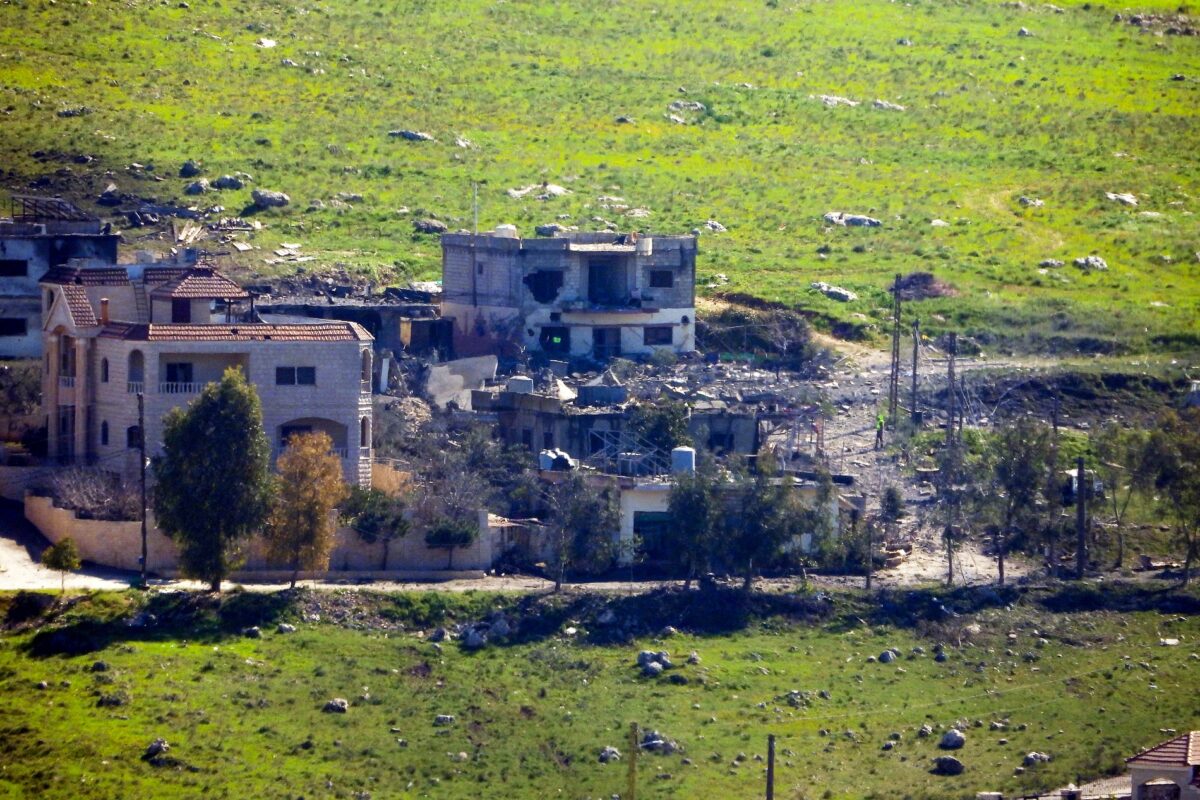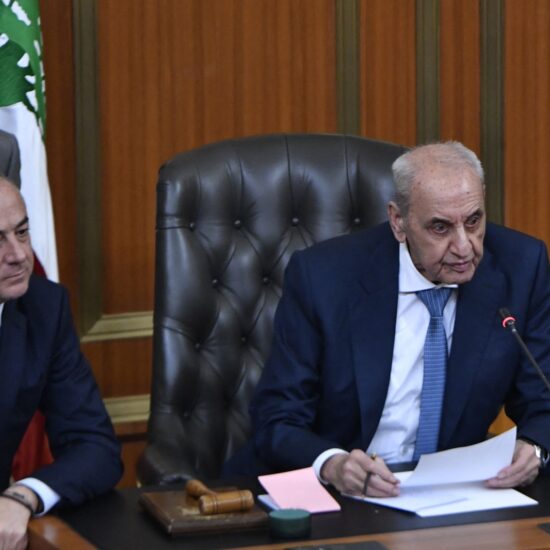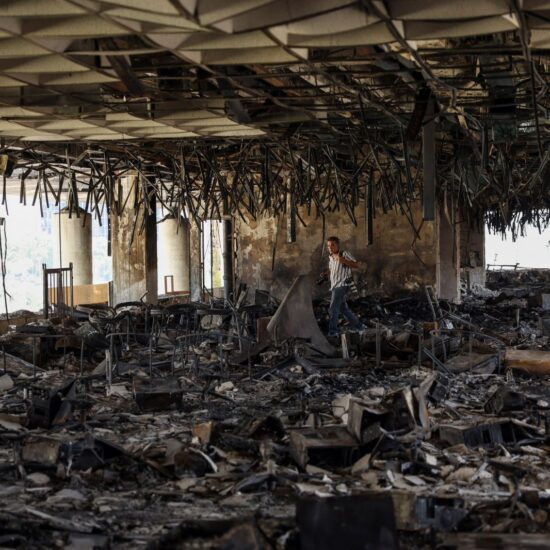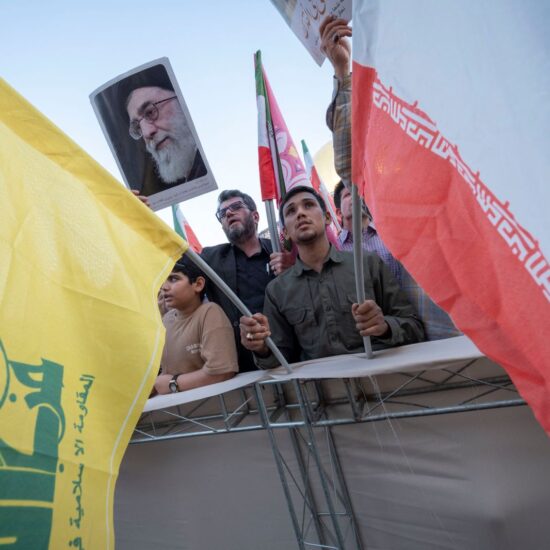
Addressing state sovereignty and Hezbollah's dominance amidst escalating conflict a and humanitarian crisis in Southern Lebanon
In recent weeks, Southern Lebanon has become a focal point of escalating conflict, marked by a significant increase in hostilities between Hezbollah and Israel. This situation has led to substantial civilian casualties, widespread destruction, and a growing humanitarian crisis. Amidst these developments, the Lebanese government’s response appears notably detached, treating the turmoil almost as if it were occurring beyond its borders. This stance is primarily due to the government’s limited influence over Hezbollah, the de facto power in the region. While this detachment might be understandable given Hezbollah’s dominant role in matters of war and peace, it raises critical questions about the state’s responsibility. The government’s perceived inaction and silence in the face of such a crisis not only highlight the challenges of state sovereignty but also underscore the complexities of Lebanese politics, where non-state actors continue to significantly influence national affairs.
Historical Context
Hezbollah’s emergence in Lebanon dates back to the early 1980s, primarily as a response to the Israeli invasion of Lebanon in 1982. It was initially formed as a militia group with the backing of Iran, evolving into a significant political and militarIy force over the years. Hezbollah’s growth in Lebanon has been marked by its increasing involvement in the country’s political landscape, along with its military activities. This growth has significantly impacted the Lebanese position on sovereignty, affecting the fabric of the social contract especially post 2005. Hezbollah operates largely independently of the state’s control, particularly in Southern Lebanon, challenging the government’s authority and creating a parallel power structure. The government’s relationship with Hezbollah is complex, shaped by internal Lebanese politics, regional dynamics, and international pressures. This relationship has led to a unique situation where the state, while officially in control, often finds itself navigating a delicate balance between asserting its authority and accommodating the realities imposed by Hezbollah’s presence and influence.
The Government’s Stance
In addressing the recent conflict, Lebanese government officials have issued statements that reveal a somewhat ambiguous stance. This approach reflects a mixture of diplomatic caution and an apparent inability to exert control over Hezbollah’s actions. The government’s statements often emphasize calls for peace and stability, yet stop short of directly confronting or criticizing Hezbollah, despite its significant role. This cautious approach can be attributed to the political balance within Lebanon, where Hezbollah not only represents a powerful military entity but also holds considerable political influence. The implications of this stance are significant and highlight the broader struggles of the Lebanese state in consolidating power and establishing a unified national agenda in the face of powerful non-state actors.
The Need for Government Involvement
It is imperative for the Lebanese government to assert its role in regions under Hezbollah’s control for several key reasons. First, the presence of a strong and effective state is essential to maintain national sovereignty and territorial integrity. When non-state actors like Hezbollah hold significant power, they can undermine the state’s authority, leading to a fragmented country where different laws and rules apply in different areas. This fragmentation can foster instability and hinder any chances for development.
Secondly, the provision of security and essential services by the state is crucial in reducing the influence of non-state actors. In regions where the government is absent or ineffective, groups like Hezbollah often step in to fill the void, providing not only security but also social services like healthcare and education. This enhances their legitimacy and support among the local population
Crisis Management and National Unity
In the face of escalating conflict in Southern Lebanon, a critical step for the Lebanese government should be to declare a state of emergency or recognize the situation as a national crisis. This would not only demonstrate the government’s acknowledgment of the severity of the situation but also pave the way for more direct involvement in crisis management.
To foster national unity and show solidarity with the people of the South, the government should initiate a series of actions. These might include:
- Humanitarian Assistance: Immediate deployment of aid to affected civilians, ensuring access to essential services like healthcare, shelter, and food.
- Communication Channels: Establish open and consistent communication channels with local leaders and communities in the South, ensuring their concerns and needs are heard and addressed.
- Inclusive Political Dialogue: Engage in inclusive political dialogues that involve representatives from all regions, including those influenced by Hezbollah, to discuss national security and unity.
- National Campaigns: Launch national campaigns that promote unity, emphasizing the shared identity and common goals of the Lebanese people, transcending political and sectarian divides.
These steps would not only reaffirm the government’s role but also help in building a sense of national unity, something more crucial today than ever, if we care for the long-term stability of Lebanon in its current form.
Public Communication and the Future of Lebanon
The Lebanese government’s cautious approach in its public communication and diplomacy regarding the ongoing conflict underscores a hesitancy to confront difficult realities. To foster trust and credibility in public institutions, the government needs to embrace a more transparent and assertive stance. This means openly acknowledging the complex challenges posed by influential non-state actors like Hezbollah, while affirming its dedication to uphold national sovereignty and the security of all its citizens.
Such a shift in communication would not only clarify the government’s position but also prompt a critical national dialogue. Lebanon stands at a crossroads, facing fundamental questions about its future. Do we aspire to preserve a unified Lebanon, where decisions are made inclusively, respecting the diversity of its people? Or are we inadvertently nudging communities towards embracing narratives of separation to face these challenges?
These are questions every Lebanese politician and citizen must confront. The answers will determine whether Lebanon can emerge as a cohesive, strong, and independent nation, or continue to navigate through fragmented allegiances and divided loyalties. The future of any Lebanon hinges on these important decisions.
Ramzi Abou Ismail is a political psychologist and researcher at the University of Kent.








